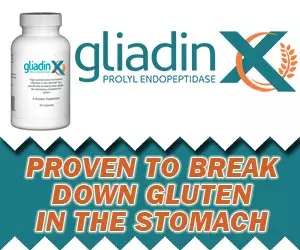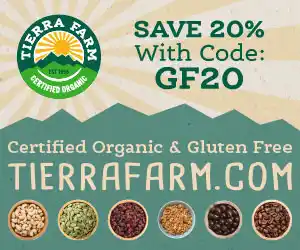-
Welcome to Celiac.com!
You have found your celiac tribe! Join us and ask questions in our forum, share your story, and connect with others.
-
Get Celiac.com Updates:Support Our Content
Response From Parmalat Canada
-
Get Celiac.com Updates:Support Celiac.com:
-
Recent Activity
-
- knitty kitty replied to Karmmacalling's topic in Post Diagnosis, Recovery & Treatment of Celiac Disease7
Celiac pain relief
Hope you're feeling better. I use a combination of Thiamine, Cobalamine, and Pyridoxine (Vitamins B 1, B12, and B6) for pain relief. Together these vitamins together have pain killing effects (analgesic). They are water soluble, so the body can easily excrete any excess. They are safe to take. Hope this helps. Mechanisms of action... -
- trents replied to Eldene's topic in Food Intolerance & Leaky Gut17
Oats gluten free?
I did some research on what exactly is gluten . . . what defines it. "The term gluten usually refers to the elastic network of a wheat grain's proteins, gliadin and glutenin primarily . . . " "The types of grains that contain gluten include all species of wheat (common wheat, durum, spelt, khorasan, emmer and einkorn), and barley, rye, and some... -
- Scott Adams commented on Scott Adams's article in Celiac Disease Basics8
What are the Odds of Developing Celiac Disease based on HLA-DQA/DQB Genotype?
If you have such bad reactions to gluten I wonder why your doctor is trying to get you to eat gluten? It may be time to find a different doctor!- celiac disease
- genetic
- (and 5 more)
-
- Scott Adams commented on Scott Adams's article in Additional Concerns10
Is McDonald's Gluten-Free? A Complete Guide to Safe Menu Options (+Video)
Unfortunately this can happen at ANY restaurant, especially McDonald's, thus the disclaimers in the article.- burgers
- celiac disease
- (and 8 more)
-
- Scott Adams replied to Eldene's topic in Food Intolerance & Leaky Gut17
Oats gluten free?
Your point about the limitations of current testing is valid, but the idea of "molecular mimicry" with rice and corn glutens is less clear. While corn contains zein, which can trigger reactions in some celiac patients, rice is generally considered safe and lacks proteins structurally similar to gluten. The term "molecular mimicry" is often overused and not...
-













Recommended Posts
Archived
This topic is now archived and is closed to further replies.